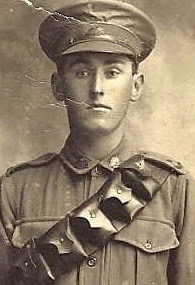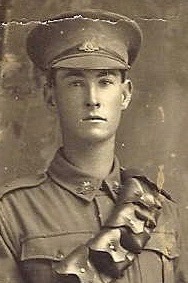A century on from the end of World War I we acknowledge their service …
Lest we forget.
Driver Ernest Adam Singer Fowler
Born: 14 August 1896 Bourke. Died: 29 September 1971 Cannington WA.
Enlisted: 20 November 1915 aged 19
Served: Western Front
Driver Thomas Vicary Fowler
Born: 1895 Bourke. Died: 10 August 1971 Perth.
Enlisted: 20 November 1915 aged 20.
Served: Western Front.
Ernest and Vic were born at the Central Australian (“Gale’s”) Hotel in Bourke NSW. They were sons of Adam Singer Fowler and Katherine Donaldson. At the time, Adam was the manager of “Urisino”, a 730,000 acre sheep station 220kms west of Bourke, and a prominent figure in that region. In 1909, the family left Urisino and after a short period near Ballarat, took up a dairy farm in Pakenham called “Elmsleigh”.
Ernest and his siblings attended Pakenham State School. They had not been able to go to school at Urisino and the desire to give their children a proper education may have been one reason why Adam and Katherine moved south (5). Unfortunately, Adam did not make a success of the dairy farm, going broke after a while (6). By late 1911, the family had moved to Moorarie Station near Yalgoo Western Australia , where Adam had become the station manager. Ernest and his brother Vic enlisted together in Melbourne in November 1915. Apparently they had travelled from outback Western Australia to Pakenham so they could enlist with school friends. At the time of their enlistment, Ernest was a 19 year old “station hand” and Vic a 20 year old “station overseer”. As they enlisted together, Ernest and Vic were given sequential service numbers and assigned to the 8th Field Artillery Brigade Ammunition Column as drivers. This was probably because they knew how to handle horses.
The brothers embarked for England together on the HMAT Medic in May 1916. Ernest and Vic ended up serving together on the Western Front too, supplying ammunition to the 31st Battery. This involved handling teams of six horses pulling wooden sleds loaded with ammunition from ammunition dumps to where the guns were positioned. The same teams of horses would also be used to position the guns (10). The conditions for this work were atrocious when the land was turned into a muddy morass by shellfire and rain.
Ernest was given a short respite from life at the front in December 1917 when he had leave in Paris. In August 1918, he was deemed as “supernumerary to establishment of 8th FAB”, and sent to England, where he spent the remainder of the War.
Late in 1917, Vic was hospitalised in England for severe bronchitis, tuberculosis and pleurisy. He was listed as seriously ill in late December 1917. In February 1918, Vic was returned to Australia. In late May 1918, Vic and other soldiers who had already returned home were presented with special gold medallions by a grateful Pakenham communit. The following month, Vic was discharged from the Army as medically unfit.
Ernest returned to Australia in March 1919 and was discharged in the 5th Military District (Western Australia) the following month. He made his way to remote Meekatharra to visit his parents who were then living at a place called Bamboo Springs.
Vic moved back to Western Australia where his parents were living. He eventually settled in Perth, where he became a tram conductor and later bus driver. He married Alice Blyth and had a family. Vic died in Perth in 1971, the same year as his brother Ernest passed away.
This is an extract from Patrick Ferry’s book A Century After The Guns Fell Silent – Remembering the Pakenham District’s WWI Diggers 1914-18.
For more details on this and other profiles in the book, head to the website www.pakenhamww1.com








